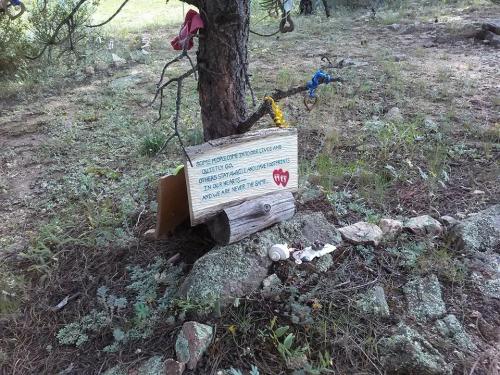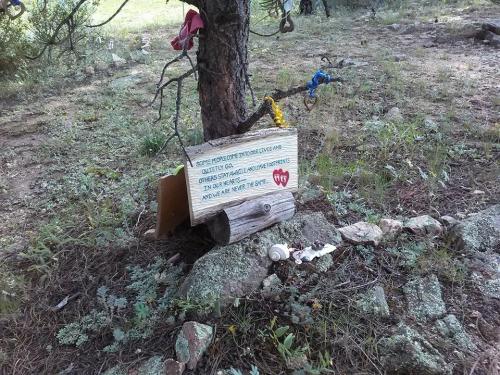When Non-Grievers Give Advice

People feel like they are helping when they say things like “time will heal,” or “God needed him more than you,” or “you’ll get through it because you’re a strong person,” Or the big one, “in time you’ll find someone new to love and share your life with.”
It’s clear, that although they mean well, the people who give such advice have not experienced grief from the death of someone they love to the depths of their soul.
Many of the widowed go on to develop new romantic relationships and become happily married again, but it’s not the proper time to offer such “encouragement” to them when the wound is still raw. I’ve been blessed with two wonderful sons and twenty-one years of a good marriage, until it wasn't so good and ended in divorce. Seven years afterwards, I unexpectedly met the love-of-my-life. Michael and I were engaged three weeks after we men and enjoyed nineteen-and-half happy years together on this earth.
Within days and weeks after my husband passed away more than a few people said, “Don’t worry, God already has someone new for you down the road.” I’ve been told by well-intentioned people, “You may not feel like it now, but you’ll want to get married again someday.”
I’m discovering that most people just don’t get it that there are some who choose not to remarry or enter into new romantic relationships. Of course not everyone feels this way, but for those who do, it can be frustrating when friends or family or acquaintances offer their hope of another marriage. They don’t mean to be insensitive, but it adds pain upon pain when no one seems to understand or accept how you feel.
To people who have not experienced the grief of losing a spouse or child or parent whom they loved with all their heart and soul, it seems “logical” that you’ll get over it in due time. I have to admit, that I was one of those people, partly because I did get through the sorrow that I felt from losing someone. Yes, I was terribly sad and I missed them. The difference is, I’d not yet had my soul ripped apart by the death of someone who was a very part of me.
Although sorrow and grief can be similar, grief goes deeper and can last a lifetime. It cuts into the very soul of the bereaved. It cracks your heart wide open. Grief is not logical. It’s not governed by anyone’s rules. It knows no time, and it comes upon each person in its own haphazard way.
I’m learning from many others who are experiencing the death of a close loved one, that once it comes into your life, grief never really leaves—not as long as you remain on this earth. It gets easier to live with, they say, but at any time, even years down the road when you feel as if you’ve finally gotten on with life, it may plow into you like a linebacker or crash over you like a tsunami. It’s sudden appearance, for whatever reason, may cause you to fall to your knees in agony or to gasp for anxious breaths or to sob a well of tears. It may sneak up behind you, causing you to struggle out of its clutches leaving you weary and depleted having to pull yourself together in ways you never expected to again.
I’ve been through loss and sorrow before with the passing of my grandparents who raised me, both parents who didn’t, my best friend from breast cancer at the young age of 42, and a divorce after more than two decades of marriage. Then again, years after the divorce, when my first husband and father of both my children passed away quickly and unexpectedly. Even though I felt sad and sorrow to various degrees in those deaths, it was not until my second husband of nineteen years, my best friend and soul mate, died that I experienced the crushing agony of grief.
I’ve had people tell me that they understand what I’m going through because they’ve been through a divorce. My divorce, after twenty-one years of marriage was devastating to me on many levels. It nearly destroyed me in emotional, physical, financial, and spiritual ways. Over time I came through it and learned to love myself and live independently for the first time in my life. As hard as it was to get through, it’s very different from the grief I feel from my husband’s death. In the case of a divorce, no matter how painful it may be, both of you are still alive. Some ex-spouses even become friends with one another.
When your spouse dies, however, you must somehow find the strength to inhabit a world in which the one you love no longer resides. The same is true for those who have lost a child or parents with whom they have a close relationship.
You are not obligated to accept anyone’s advice when it comes to grieving. If it feels helpful, explore it further or accept it. If it just doesn’t feel right, then let it go. You do not have to explain yourself. Just thank them for their concern. Or not. You are not obliged to respond at all.
It’s not their fault, though, that they say or do insensitive and hurtful things. Until they enter the world of a loved one's death, nothing you can say will make them understand grief. Nothing.
Article Images




Comments